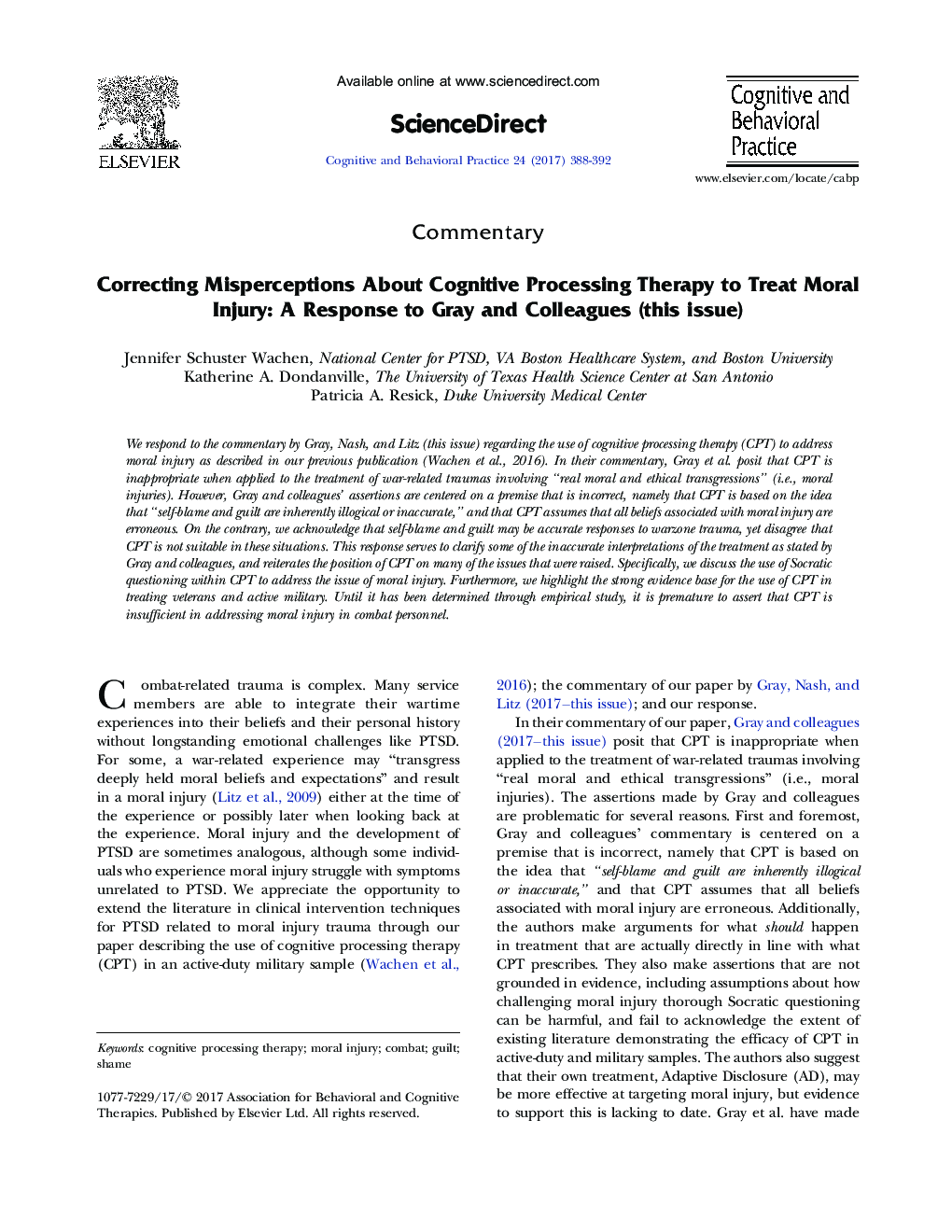| کد مقاله | کد نشریه | سال انتشار | مقاله انگلیسی | نسخه تمام متن |
|---|---|---|---|---|
| 5038550 | 1472862 | 2017 | 5 صفحه PDF | دانلود رایگان |

We respond to the commentary by Gray, Nash, and Litz (this issue) regarding the use of cognitive processing therapy (CPT) to address moral injury as described in our previous publication (Wachen et al., 2016). In their commentary, Gray et al. posit that CPT is inappropriate when applied to the treatment of war-related traumas involving “real moral and ethical transgressions” (i.e., moral injuries). However, Gray and colleagues' assertions are centered on a premise that is incorrect, namely that CPT is based on the idea that “self-blame and guilt are inherently illogical or inaccurate,” and that CPT assumes that all beliefs associated with moral injury are erroneous. On the contrary, we acknowledge that self-blame and guilt may be accurate responses to warzone trauma, yet disagree that CPT is not suitable in these situations. This response serves to clarify some of the inaccurate interpretations of the treatment as stated by Gray and colleagues, and reiterates the position of CPT on many of the issues that were raised. Specifically, we discuss the use of Socratic questioning within CPT to address the issue of moral injury. Furthermore, we highlight the strong evidence base for the use of CPT in treating veterans and active military. Until it has been determined through empirical study, it is premature to assert that CPT is insufficient in addressing moral injury in combat personnel.
Journal: Cognitive and Behavioral Practice - Volume 24, Issue 4, November 2017, Pages 388-392